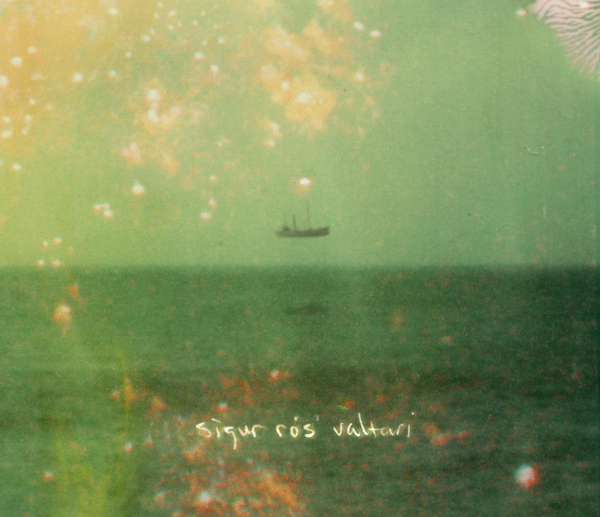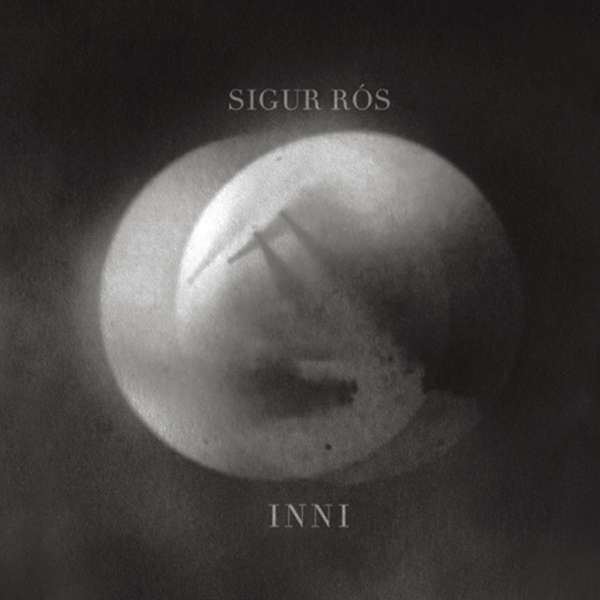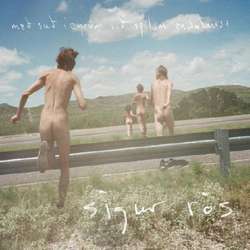I came to know Sigur Rós through their early material, all very long, dreamy recordings with just a hint of pop rock bliss to ground them. Ágætis byrjun and ( ) are the albums that made the band a household name, and it's difficult not to look back on them and feel like, in some capacity, that's what the band should still be doing. There's something about the slow-building, ten-minute catharses that is so instinctively appealing to post-rock fans that anything else almost feels like a cheat. But just because Sigur Rós has shied away from the excess and grandeur of their earlier albums doesn't mean they're out of compelling things to say, and that is nowhere as clear as it is with their newest album, Kveikur.
Though this is their first recording after losing keyboardist Kjartan Sveinsson, it doesn't sound like the band has changed much at all--in fact, in some ways, it sounds like a return to form. Though that might sound paradoxical, considering how disparate these shorter, pop-oriented compositions are from the likes of Takk..., Kveikur is merely a different realization of the same fusion that made albums like Von so successful in the first place. Rather than fitting pop rock compositions to a post-rock structure, Kveikur instead takes post-rock compositions and fits them into a pop rock structure. The pieces are lushly orchestrated, huge in sound, and full of incremental development, and yet they all seem to fall into a predictable versechorus format, providing an aural refuge for those who were intimidated by their more sprawling releases.
Another key difference this makes in the album is the increased focus on individual songs rather than the album as a whole. Whereas ( ) was better witnessed as a full album, a strong argument can be made for appreciating Kveikur primarily on the song level. Though it still works on the macro level, it's hard not to notice how the album is formatted to highlight fantastic tracks like "Kveikur," the opener "Brennisteinn," and the fantastic single "Ísjaki" as opposed to how they fit into the larger picture. In addition, there is a larger presence of electronic elements in their music, a holdover from the trend they developed with Valtari. If nothing else, no one can rationally accuse these guys of refusing to grow as a band.
There are a few weaknesses to the album, most noticeably, that the increased focus on song-oriented composition means that there is a noticeable amount of chaff floating about. A few of the tracks feel like simple padding and filler, and unlike their more album-oriented releases, the difference is much more noticeable to the ears. While that tends to be the problem with any long-format album that values the individual song over the whole experience, Sigur Rós have a lot of compositional history behind them, and it definitely seems like they could've tried a bit harder with some of the songs. But the fantastic tracks more than make up the slack ("Ísjaki" is getting some serious airtime on my library), and as a whole,Kveikur comes out no worse for the wear.
The important thing about Kveikur isn't that it represents a subtle change in Sigur Rós's modus operandi, it's that the album is another realization of the disturbingly effective, euphoria-inducing compositions that they have become known for. Like the rest of their discography, Kveikur is first and foremost an emotional statement, and no one can deny how beautiful it is.
Recommended if you like: Mogwai, EF, Leech





